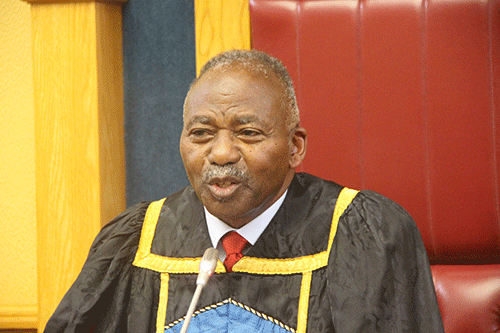Namibia’s 31st independence anniversary should reflect the country’s ability to unite as a nation, which was previously divided on ethnic and racial lines under one roof, says National Assembly Speaker Peter Katjavivi.
According to Katjavivi, as much as this task was a daunting one, citizens should continue to pursue to unite the Namibian house. “Under this one roof, our citizens have worked so hard since our country attained independence, and we have made tremendous strides throughout our various socio-economic sectors, together with the assistance of our development partners,” said Katjavivi, who also formed part of the constitution’s drafting committee in the Constituent Assembly, which was chaired by President Hage Geingob.
“The creation of various national institutions and structures to govern the country – these endeavours will and must continue.” Katjavivi said the process of drawing up the constitution involved bringing persons from different political parties under one roof, and talking to each other, even though they had been on different sides during the “protracted” liberation struggle.
“The work of writing the constitution brought us together in a common desire to become a self-determining independent nation. This process entailed reaching out to each other, by adopting a methodology that involved consensus, a high degree of patience, understanding and confidence building,” he said.
The speaker opined there was an unwritten code of reconciliation and inclusiveness that generated a spirit of nationhood which was led by the current President, Hage Geingob.
“It was then consolidated in the final written constitution, and the incoming Swapo government’s policy of reconciliation. This laid the foundation for the long-lasting peace and stability that emerged in independent Namibia,” he said. Today, Katjavivi said, the young nation of Namibia can be referred to as a role model of peace and stability on the entire African continent. “This is indeed a great achievement,” he stressed.
“Our success in coming together peacefully to write the constitution also signalled a positive message to South Africa, at a time when there was a great deal of uneasiness about the wind of change blowing across that country. This helped to encourage South Africa to take the step towards a free and democratic society.”
Katjavivi added that the best way to address the country’s challenges and improve as a nation is to work together and make timely targeted interventions, as guided by our national development plans. “Key to this is monitoring and evaluation so as to improve as we go along,” he said.
High level of inequality
Katjavivi says the impact of inequality is found in all socioeconomic sectors in the country, therefore, the best way to address this challenge is to approach each sector with a specific goal in mind. “We also need to enhance our level of accountability to the intended beneficiaries and the nation at large. Corrective interventions should be timely,” he said.
He said the way Namibia has managed to address the Covid-19 pandemic has been effective. However, it has revealed a lot of gaps in the level of resource mobilisation and coordination across the country.
“Whenever we are faced with a particular challenge, we need to pay attention to all levels of leadership in the country. We all have duties to perform and act in the best interest of Namibia today and for the future,” the speaker said.


